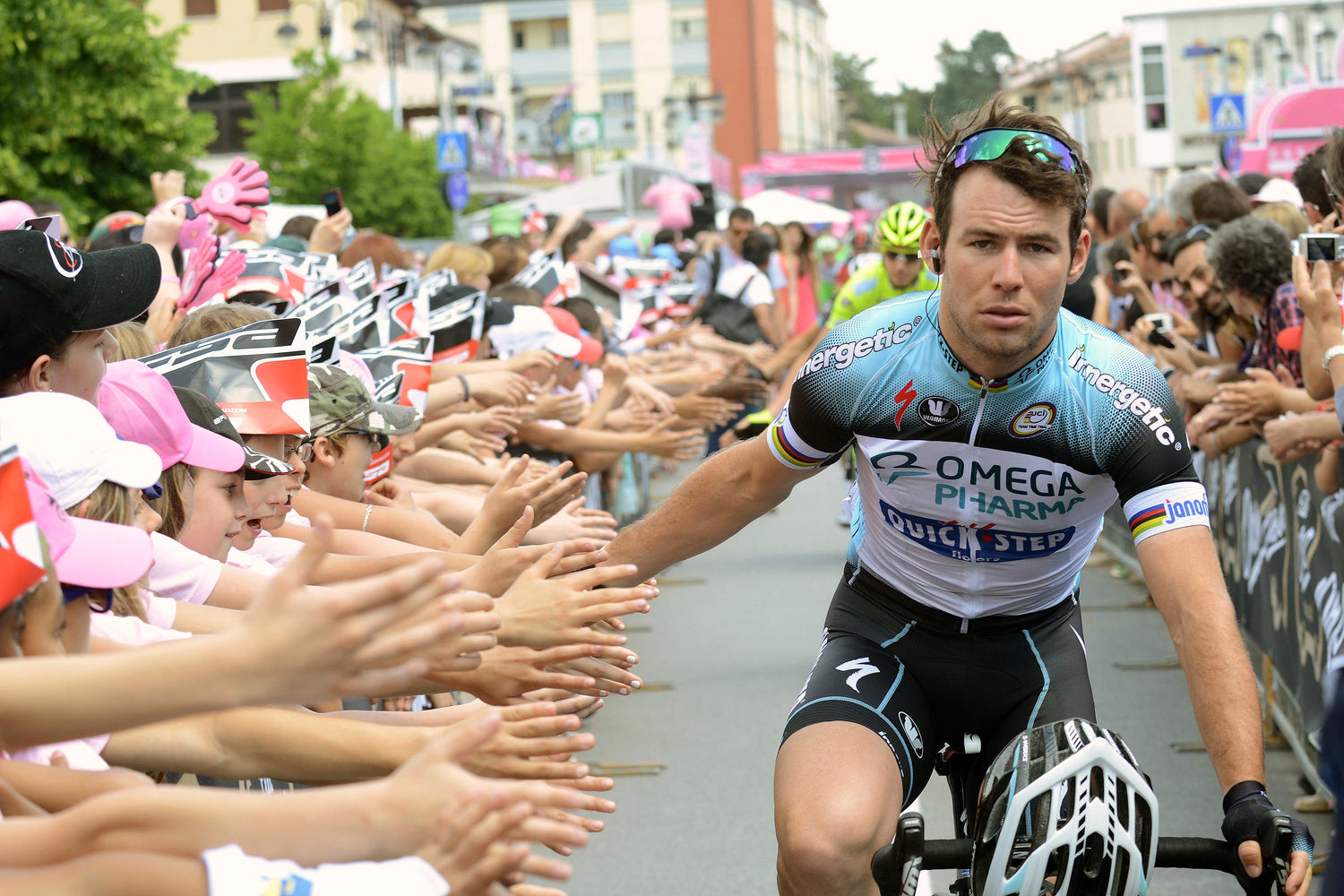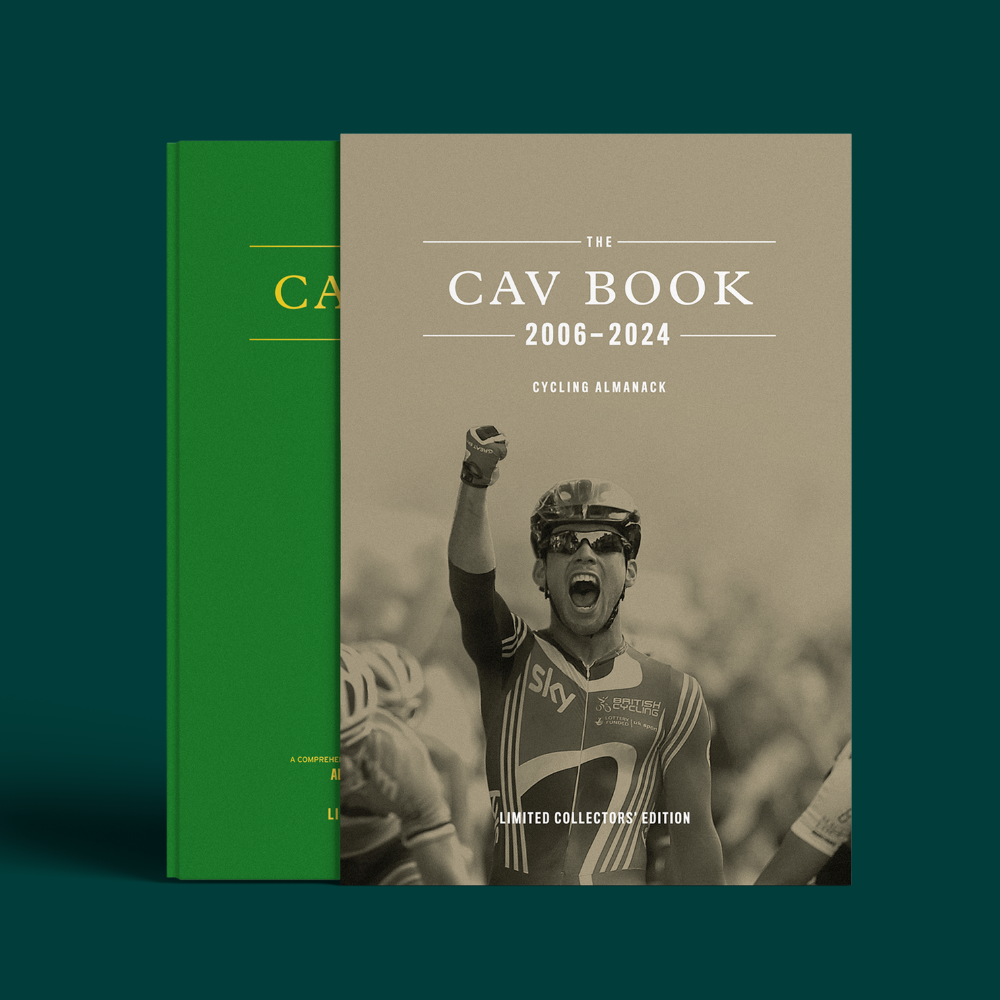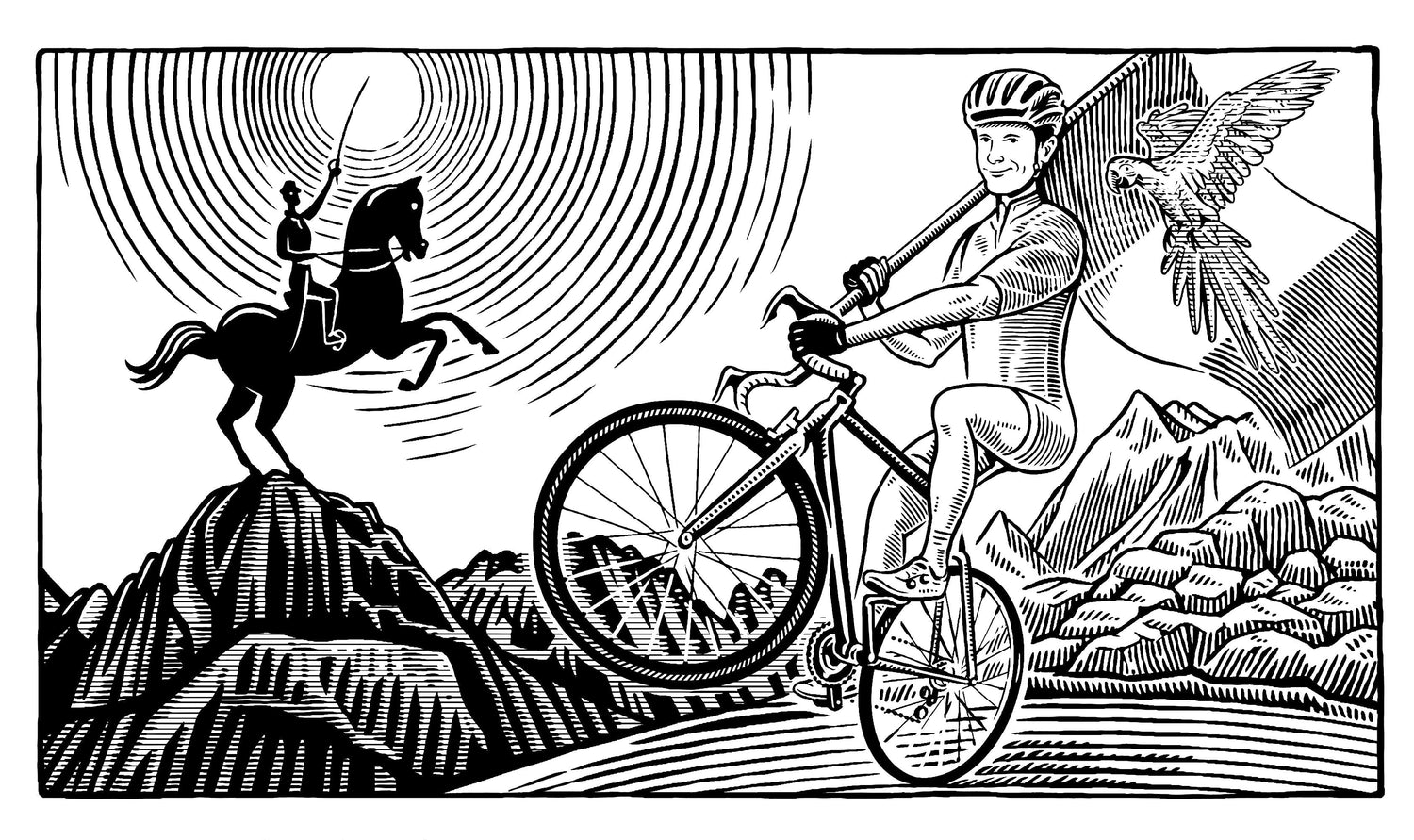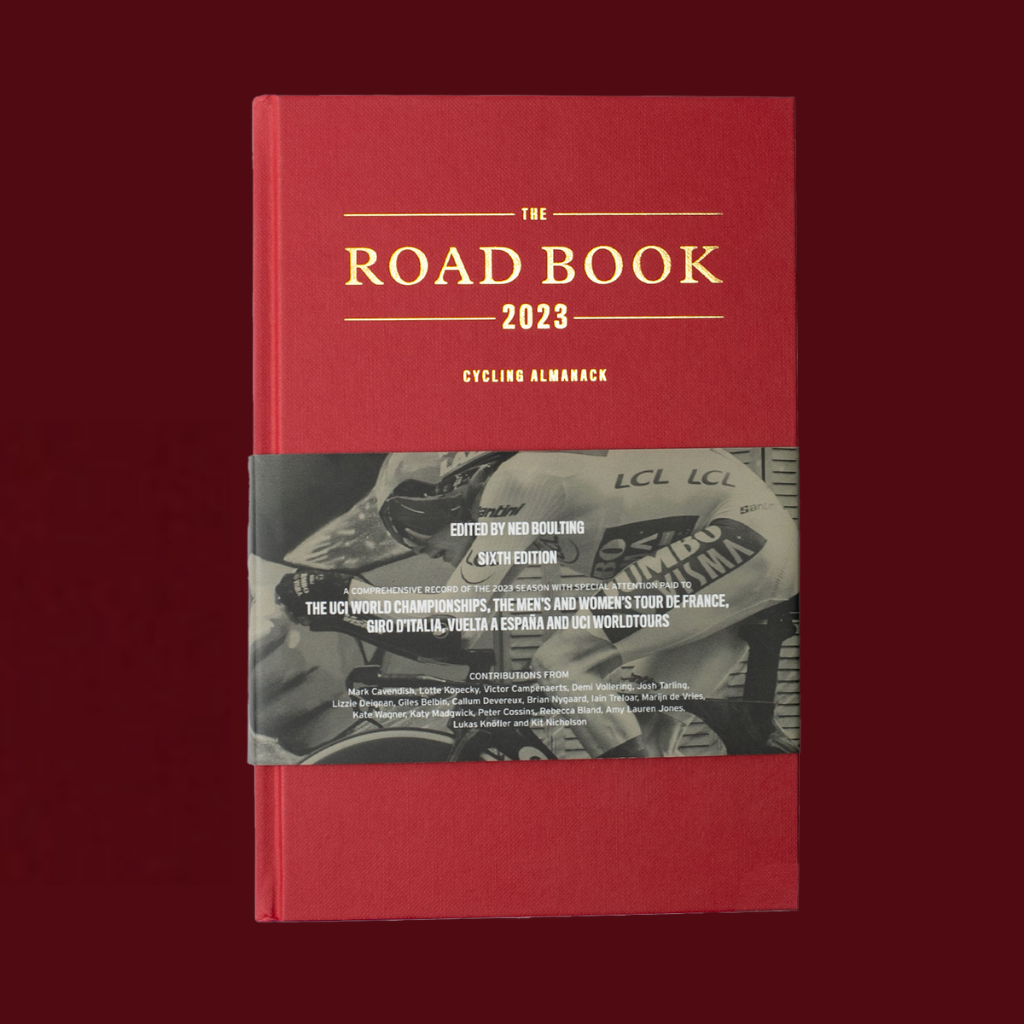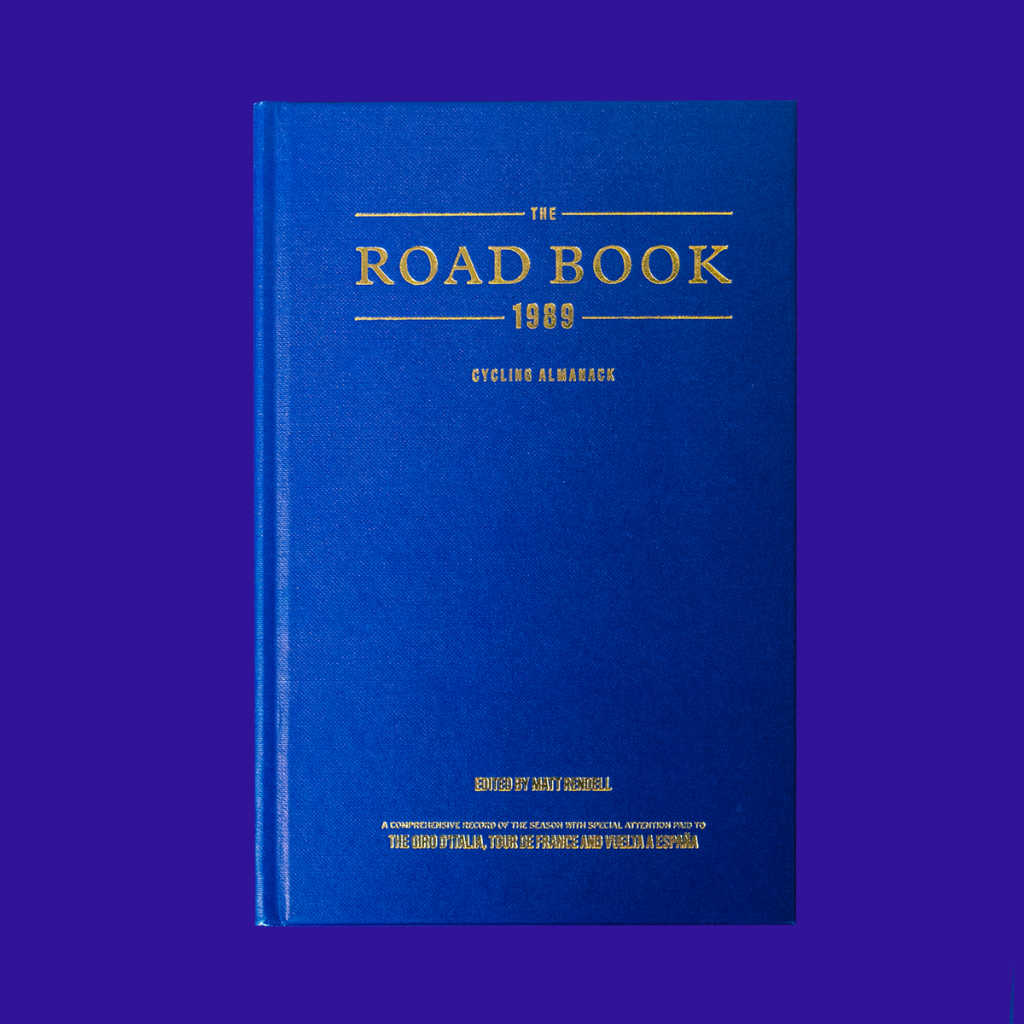ROAD BOOK RETROSPECTIVE
In the build-up to this year’s edition of ‘The Classics’, have a read of Wout van Aert’s excellent essay from The Road Book 2020. This essay was one of our editor, Ned Boulting’s favourite ‘Classics’ themed pieces and as such has been selected to join the Road Book Retrospective series.
Strade Bianche has been special for me since I first rode it in 2018. It was a big goal in March, until it was cancelled just a couple of days before. On the new calendar, it was literally the first race, so we refocused. I had no competition in my legs, of course, but I did three weeks at altitude and came down in great shape. It was the first race with no crowds. Now we are all used to it, but the day before Strade Bianche everyone was wondering what it would be like. To tell you the truth, the moment the race started, it didn’t make much difference. You’re so involved in racing and tactics, you don’t even notice. In any case, the heat was terrible – almost 40 degrees, I think, definitely the hottest day ever on the bike for me – so hydration and nutrition were really important too.
Natural selection formed a small group at the front. There’s only one long section of asphalt between 50km and 30km to go, and I took a good look and saw that everybody was sort of cooked already. I was too, but I had decided before the race, if I was in that situation, to attack on the last gravel section, the really steep one, starting with a downhill. I thought to myself, ‘Don’t think too much about the conditions or how much your legs hurt. Just stick to the plan.’
I opened a small advantage in the downhill and gained a bit more on the steep climb. I was nervous because I only had a small gap, but approaching Siena the two chasers started riding tactically and then the gap opened to half a minute, and that was enough.
It was only really on the final climb, the Santa Caterina, and in the centre of Siena, that it seemed really strange. Normally it is full to bursting. That day, there was literally no one there.
Everything else followed on from that performance: the races that came afterwards were much easier because I was confident and relaxed.
A week later, it was Milan–Sanremo. The Poggio is not steep at all. You’re on the big ring riding at 40kmph or something. Not many riders can make a difference on that climb the way Julian Alaphilippe can. He’s so explosive. It was hard to get on his wheel, but there was no going back and, once we were together at the front, I thought I had a good chance in the sprint. That said, Julian played it really smart. He didn’t take pulls from 1.5km or 2km to go. It made me nervous, of course, because the group was close and I still had to ride. But I like to do a long sprint – I think it’s one of my strengths – so I launched it really early. He came back at me and pulled alongside, and I think I had just one wheel in front in on the finish line. Perfect!
I hadn’t seen my family for a long time, but we had planned that they would drive to Clermont Ferrand, where the Dauphiné started, and I had three days with my parents and my wife in Provence, close to Mont Ventoux, just relaxing without anyone else around. Mentally I needed it. The Dauphiné came a bit too early, because I was still enjoying the moment. I didn’t expect to win stage 1 at all. The team wanted to work for me. I was still tired, so I said, ‘Let’s see how I feel in the race.’ It took 150km for me to feel like a bike rider again. As it panned out, my legs started turning better and I finished off the work done by my teammates. It was an incredible feeling. Everything I did worked out. Luck was always on my side. It was really cool.
The Dauphiné finished on the Sunday, then the time trial championships in Belgium were the following Thursday, and it was a really tough race. The transfer was tough: a day earlier and I would have been too tired, but I felt better for the first day in the week and I was strong enough to beat Victor Campenaerts. It’s always nice to have the jersey.
At the Tour de France, I took two very different wins. I think the stage to Privas was the easiest stage I have done at the Tour. There was no breakaway and it was slightly downhill all day along a big national road. I was really focused on the stage win that day; it was one of the only days in the Tour where I had an opportunity really from the start. The final kilometres are always hard, and everybody was fresh, which makes a big difference, but I saw the sprinters struggling around me, on the limit, and I got a mental boost because I knew I had an even better chance. Sunweb did a really impressive lead-out, but I launched my sprint early enough to get past Bol. It’s always special to win a Tour de France stage.
From that moment on, I said, ‘I have my own stage win, so now I will focus completely on the team goal.’ Stage 7, Millau to Lavaur, was a tricky stage with a lot of wind and I kept Primož at the front the whole day. It was always nervous, but in the final we saw it was good that we were so focused because we made the first echelon. Then, with a few kilometres to go, I got the call on the team radio that I was good to go for the sprint, as a sort of bonus because I had been working all day. But in a windy stage like that I think everybody suffers, even the guys who weren’t working. Even so, it was amazing after a day of working still to have the legs to win the sprint.
You never win a race alone. I need my helpers too, so it’s normal for me to switch into becoming a helper. It makes a nice change, having pressure on someone else instead of me. In any case, Primož is a great guy. Unfortunately the last weekend was really shit for us. Nobody could have foreseen that Primož would lose so much time. We got criticised afterwards, but we controlled the race until the final TT. If we had had any idea that Pogačar had such a good time trial in him, we would have tried other tactics. We thought a minute on him was enough. We were wrong. He was in another league. It was not much fun to reach Paris like that, but we are still proud of our performance at the Tour.
The season ended with second place in the Ronde to Mathieu van der Poel. We have raced against each other since we were kids, so it was special to find ourselves disputing one of the world’s biggest races. In cyclocross, we pushed each other to become better and better, and now we are doing the same on the road.
If you enjoyed Wout van Aert’s essay, why not pick up your very own copy of The Road Book 2020 from our online shop: https://www.theroadbook.co.uk/collections/all-products
Use the coupon code: RETROCLASSICS for a 10% discount.



